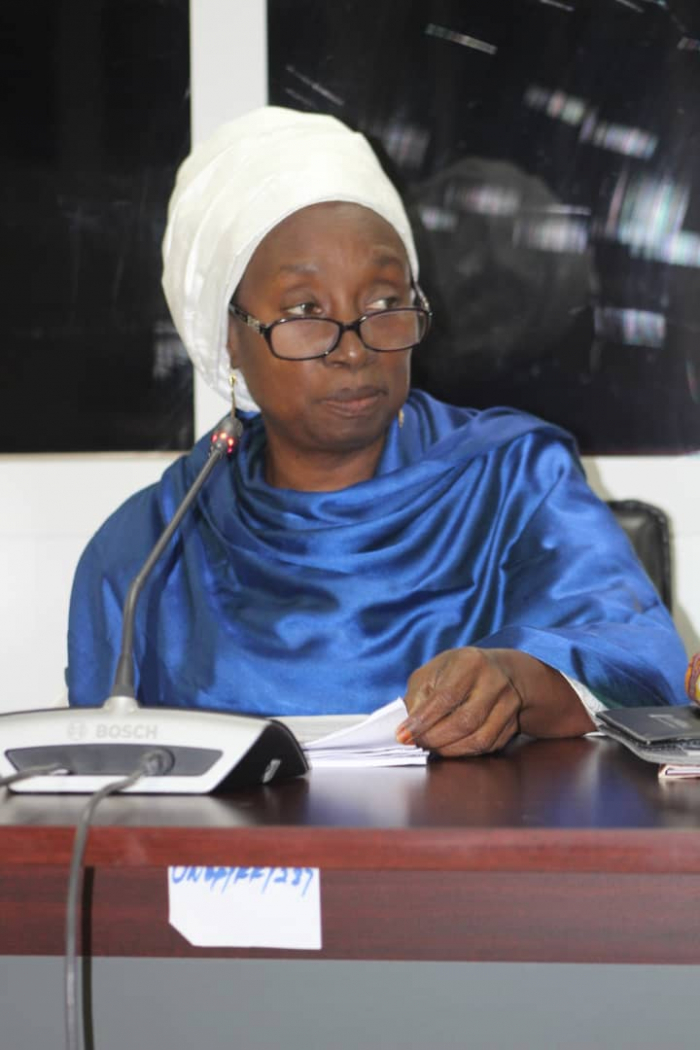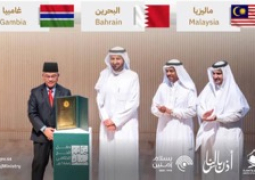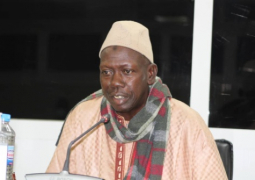
When she was questioned on the sale of seized assets, a matter at the heart of the committee’s probe, Bensouda said: “My office took no part in any sale whatsoever, absolutely nothing like that happened.”
She explained that the Commission merely issued orders on how sales should be conducted, and the secretary was responsible for executing those orders, including delegating assistant secretaries. Lawyers, she stressed, had no involvement in operational sales work.
Pressed again on whether she influenced the suspension of sales or issued any legal advice to halt the process, she replied: “Nobody asked me and I did not give any opinion.”
Hon. Omar Jammeh requesting a full account of all commission-related documents, devices, and electronic files that may have passed through her hands, Bensouda responded plainly: “I have given you the files that I have. These are my work files I don’t have custody of any official file.”
She explained that any documents tendered at the Commission were taken over by the secretariat, not her. What she retained were merely personal working materials; copies, notes, orders, applications, and handwritten proceeding notes used in drafting briefs.
According to her, all official electronic files were produced and stored under the secretariat, including digitised exhibits and transcripts. Those, she said, are listed in Volume 1 of the Commission report.
When Hon. Jammeh hinted that some materials could not be located, Bensouda expressed surprise. After submitting the final report, she said, “I packed up my office and left the secretariat. They were supposed to wind up. They are the custodians of all records.”
On questions about laptops, external drives, emails, or servers, she was categorical, saying the Commission did not supply her with any devices. “My staff brought their own laptops even the interns had their own laptops,” she said, reinforcing that all equipment belonging to the commission remained under the secretariat.
Hon. Jammeh later turned to staffing and costs particularly payments to personnel recruited through her firm. Bensouda stated “I was paid monthly D450,000 net. That was the only money I was ever paid. Neither I nor any of my staff received allowances.”
She said all senior associates and interns were paid by her firm.
However, when international investigations were required, she confirmed that travel costs were shouldered by the government’s general travel budget not the Commission’s. She referenced missions to the U.S. and Morocco, explaining that some planned inquiries in Panama, Hong Kong, and Nigeria were never executed because there was no money.
Bensouda also confirmed that lawyers from her office assisted at different times, as acknowledged in the Commission’s report.
Hon. Jammeh questioned whether exposing non-government staff to sensitive information was appropriate.
Bensouda dismissed confidentiality concerns, insisting that all materials they handled were already public exhibits “There was nothing confidential. Anybody could apply to have a copy.
Hon. Jammeh raised allegations from a secretariat official who claimed she was sidelined during preparation of the Commission’s report. Bensouda responded saying: “The Commission wrote their report, we submitted briefs, and they wrote their report.” She said any complaint about exclusion should be directed to the commissioners, as writing was their responsibility not hers.
On claims that some staff were excluded from writing sales reports, Bensouda maintained firm distance, saying: “We did not work with them as far as sales were concerned; we had nothing to do with reports. Nothing whatsoever.”




